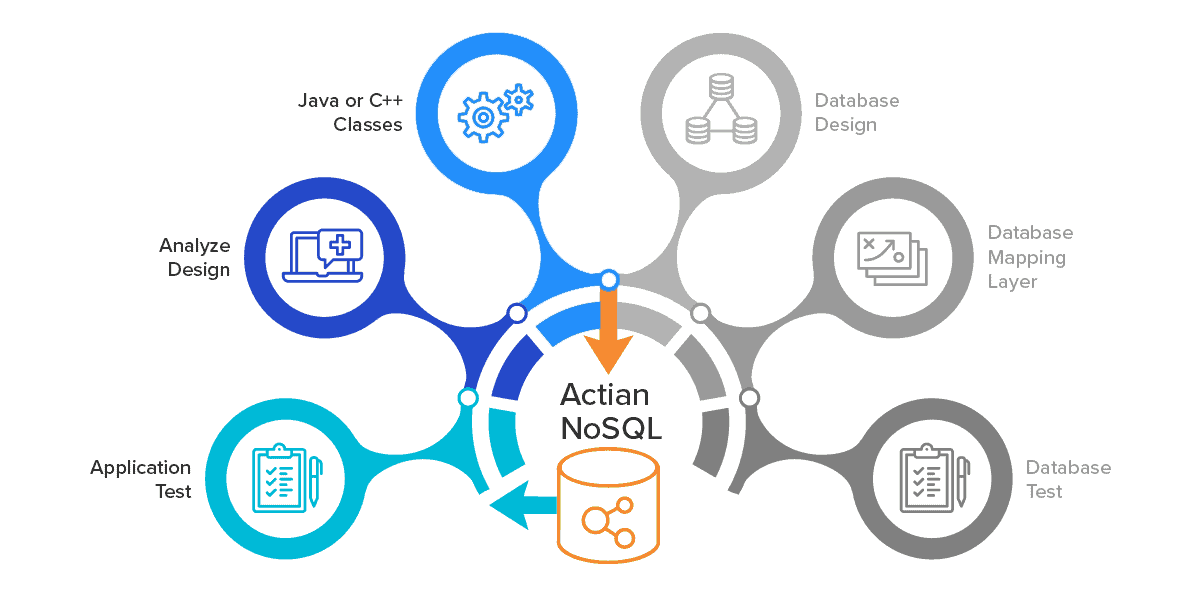

About Unit4 C-Logic
Unit4 C-Logic is a division of Unit4 Business Software. Prior to its acquisition by Unit4, the Bruges-based company was known as C-Logic. Its Venice accounting and invoicing system has been a mainstay for Belgian accountants since 1985.
Challenge
To meet the need for a high-performance accounting solution that was both easy to manage and designed around Belgian accounting rules, Bruges-based Unit4 C-Logic (formerly C-Logic) wanted an embeddable, performance-oriented database that could operate optimally without ongoing administration.
Solution
Actian Zen, a zero-administration, embeddable, nano-footprint, NoSQL, and SQL database.
Outcome
On-premises or in the cloud, Unit4 C-Logic’s offering, known as Venice, provides accountants with a flexible, responsive solution built around a reliable, high-performance database requiring no tuning or end-user maintenance.
Nobody hires an accountant for their expertise in database administration.
That may seem like something that goes without saying, but for the software developers at C-Logic—now part of Unit4 Business Software—it was a truth with profound implications. In the late ‘80s, this team of Bruges-based developers was building one of the first standalone accounting packages designed to meet the needs of small and mid-sized Belgian accounting firms. For high performance, extensibility, and scalability, the developers wanted to build their application around a database—and there lay the problem. The popular databases capable of delivering the performance they sought all required the active involvement of someone with sophisticated (and costly) database administration skills, which they would not expect to find in small and mid-sized accounting shops. Since their target customers were those small-to-mid-sized accounting firms, they needed an embeddable database that could reliably deliver a high-performance experience without the ongoing attention—or cost—of a database administrator (DBA).
That problem gnawed like ledgers that would not reconcile—until they discovered the database now known as Actian Zen.
The Solution
Actian Zen is a zero-administration, embeddable, nano-footprint database that provides both NoSQL and SQL access to data. In its earlier incarnations, Actian Zen was known as Btrieve and, later, Pervasive SQL. Today, Actian Zen continues to provide high-performance access to data through a Btrieve API; it also provides relational access to the same data via an interface supporting standard SQL calls.
Moreover, the Actian Zen database today consists of four editions—Core, Edge, Enterprise, and Cloud—that cooperate to support every modern use case from the IoT to field and branch on-premises as well as the cloud. Actian Zen Core can be embedded on single-user or IoT devices and pass data opportunistically to edge servers running Actian Zen Edge for local analysis and processing, to Actian Zen Workgroup for Windows in support of desktop and multi-user SME environments, even into instances of Actian Zen running in the enterprise data center or in the cloud. Because all editions of Actian Zen rely on the same data file formats, they can move data back and forth without the need for extract, transform, and load (ETL) services that sometimes create performance bottlenecks in a client-server scenario. Customers using applications built around Actian Zen—on a single device or in a client-server configuration—experience the best of both worlds: Their transactions can be executed quickly through the high-performance Btrieve API while their modeling and reporting needs benefit from the flexibility and power enabled by the relational SQL interface.
The Benefits
For the developers at C-Logic, the power and reliability of Actian Zen was precisely what was required—even 30 years ago when they first deployed what would become one of the most popular accounting packages in the country: Venice.
“We’ve really used Actian Zen from the start,” says Ignace Godderis, Project Manager at Unit4 C-Logic. “The core database interactions take place using the Btrieve API for performance. When Pervasive became available we started to take advantage of the SQL interface for navigational access, but all along our Venice application has relied on this as the underlying database solution. Our customers are accountants and accounting firms that manage invoicing and accounting for others. They don’t want to be dealing with database administration. They want a solution that lets them focus on meeting the needs of clients, that provides reliable high performance, and that is easy to use. Actian has enabled us to deliver that.”
Many Unit4 C-Logic clients are firms with only two to three accountants. They appreciate the fact that Venice delivers the punch of a high-performance system without any of the administrative overhead. Most are not even aware that the Venice system is built around a database: They simply enjoy of the experience of working with a well-built accounting application. Indeed, each accountant may be working with one hundred or more clients, yet at no time do they need to perform any database administration to ensure optimal performance of the Venice application.
Unit4 C-Logic also has clients with hundreds of accountants working on a server- or cloud-based instance of Venice, and even among those who have access to a sophisticated IT team, there is ongoing appreciation for the zero-administration qualities of Actian Zen. The IT team doesn’t need to work on tuning Venice or its underlying database. They can focus their attention on more pressing issues.
Incorporating Automation
The extensibility of Actian Zen is one of the elements of the database platform that enables it to remain hidden within Venice yet continuously responsive to customer and developer needs. Over the years, developers at Unit4 C-Logic have written a number of automation routines in C, C++, and C# to facilitate interaction with the Actian Zen database at different times. When an accountant adds a new client, for example, the Venice software can call up a routine to create a new directory and setup all the requisite data tables in Actian Zen—without the accountant having to do any of this manually. Similarly, when an accountant closes a client’s books at the end of a fiscal year, Venice interacts with Actian Zen to automate the creation of all the new tables that will be needed for the next fiscal year. When customers upgrade to newer versions of Venice, particularly when a newer version can take advantage of the features of a newer release of Actian Zen, a number of routines automate table resizing and other tasks—all of which facilitate the delivery of an accurate, timely, and optimized experience for the accountants using Venice.
“We have never had a reason to look at any other database solution,” says Mr. Godderis. “We needed a database that would be reliable, fast, and automation-friendly. Our customers don’t want to be database administrators, so we have automated quite a number of processes to ensure that they don’t have to be. Ever since the start, Actian has made it easy for us to do that.”


